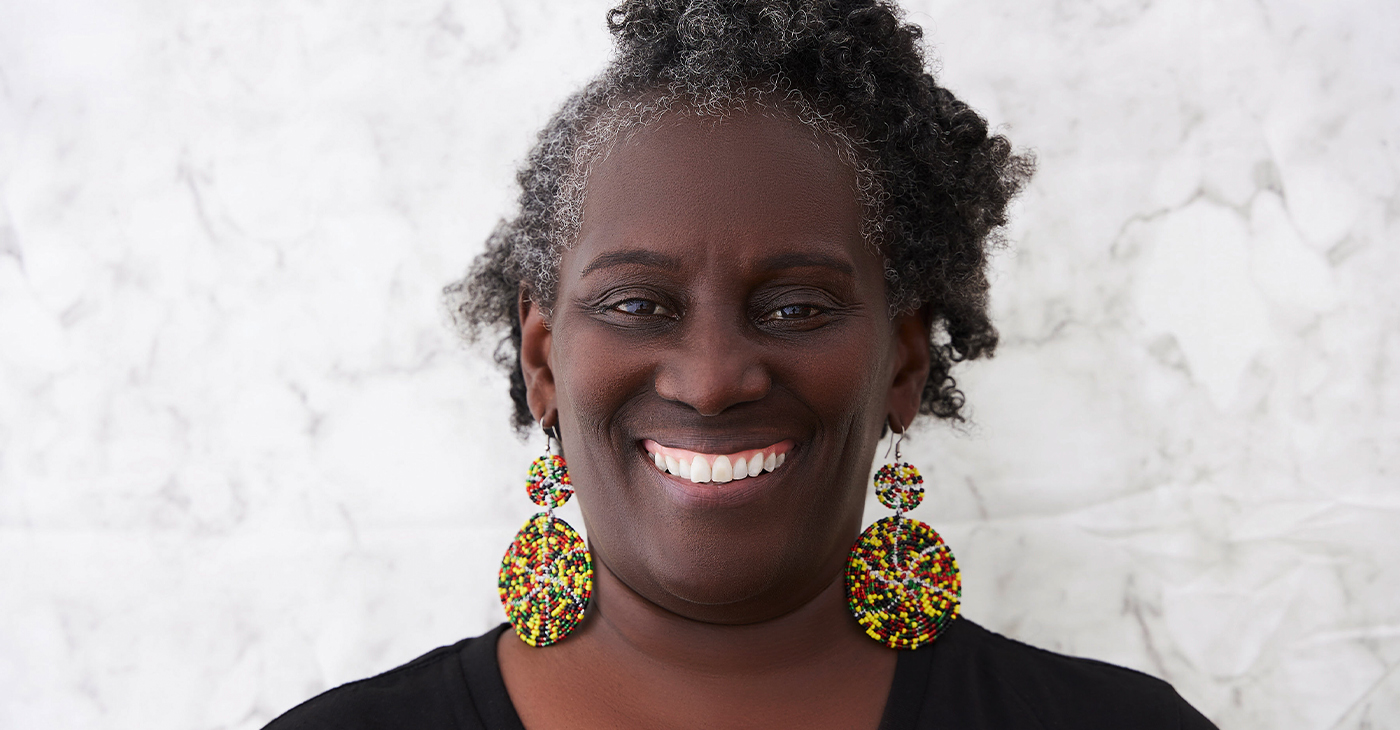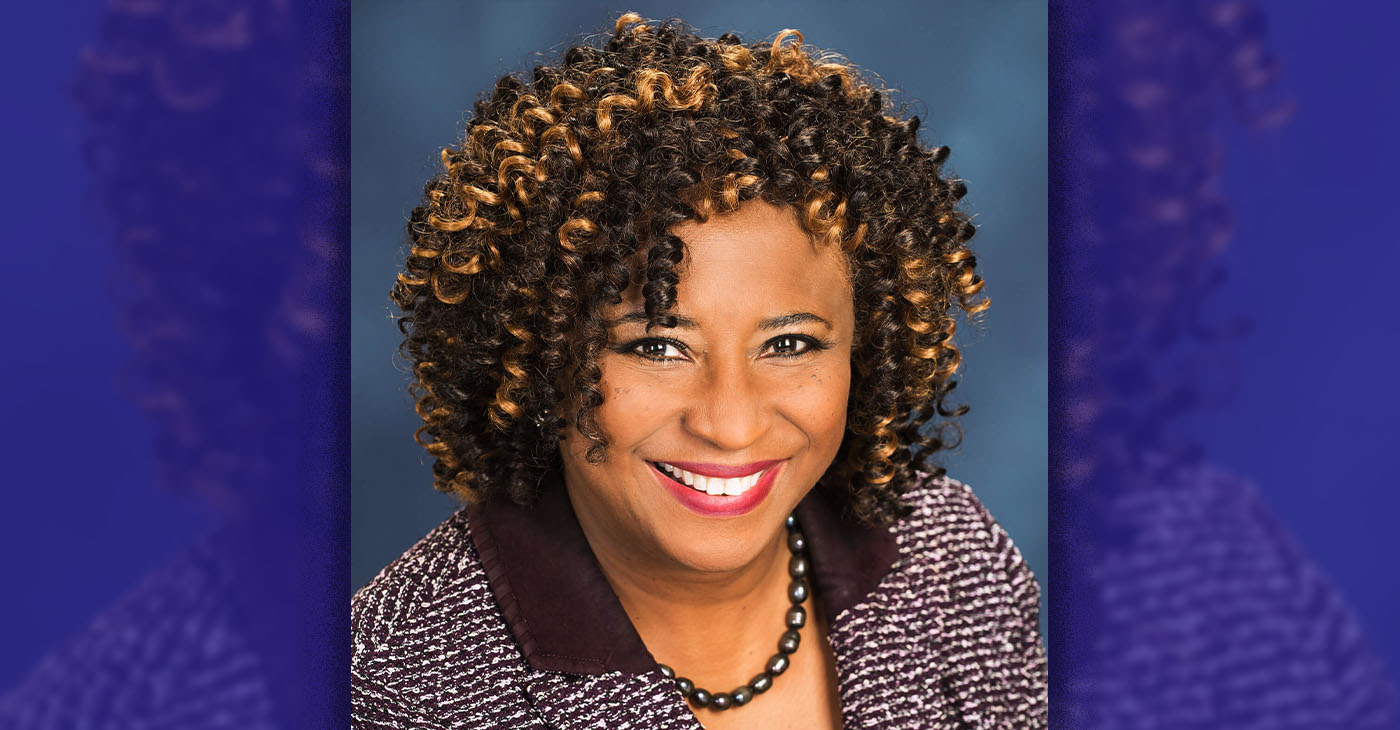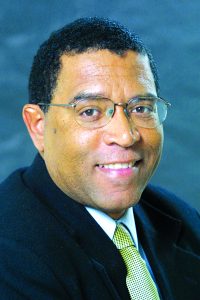Uncategorized
Let’s Talk About Sex: Breaking the Silence of Black Sexuality in 2019

Sexuality in the Black community has always required an increase in awareness, from Dr. Na’im Akbar’s “Breaking the Chains of Psychological Slavery” to Salt-N-Pepa’s “Let’s Talk About Sex” lyrics.
The silence about our sexual experiences has its roots in the history that was created during our enslavement and the unbridled savage rape of captive African men, women, and children.

The selective breeding of males and the created female sex-slave produced and supported ideas in the Black self that included personal shame and guilt, which fostered a life of secrecy. Reporting victimization created problems for victims’ mental health, reputation, relationships, and livelihood. Potential consequences of reported sexual violence can cause ruptures in family relationships, hypersexualization, inappropriate interpersonal boundaries, intimacy challenges, low self-esteem, depression, anxiety, and substance use.
It is no surprise that victims would silence their sexual traumas for protection of self, family, and community. This unaddressed historical and contemporary secrecy continues to perpetuate disregard for the sanctity of Black sexuality and proper sexual relations. This silence continues and is evidenced in modern-day statistics:
– 60 percent of Black girls have experienced sexual abuse by Black men before the age of 16
– 1 in 4 Black girls will be sexually abused by the age of 18
– 22-29 percent of all child sexual abuse victims are Black males
– 30 percent of adult Black women with documented histories of childhood sexual abuse have also reported being sexually assaulted in adulthood
– For every Black woman who reports a rape, there are at least 15 Black women who choose not to report sexual assault/victimization/violence.
In consideration of these staggering statistics, it must be reiterated that most incidents of sexual abuse are not reported.
Various literary and artistic movements throughout Black culture have exposed the silence of sexual abuse and lack of sexual health awareness in the Black community. Several literary works, including “The Color Purple,” “The Bluest Eye,” and “For Colored Girls Who Have Considered Suicide / When the Rainbow is Enuf,” have broken the silence on incest, domestic violence, sexual assault, lack of sexual health knowledge, and mental health experiences with the Black community.
The exposure of these issues continued into more contemporary popular culture, like the 1990s hip-hop trio Salt-N-Pepa’s “Let’s Talk About Sex,” and the comedy sets of Chris Rock, Kat Williams, and Dave Chappelle, all of which illuminate the lack of conversation on sexual abuse in the Black home.
Although these artists have highlighted these issues, it is imperative that we begin to discuss sexual abuse and sexual health within the Black community. While we did not create this problem of silence of sexuality and sexual violence, it is ours to resolve. It is important to break the silence of sexual abuse in the Black community and to assist ourselves and our communities in increasing vigilance and understanding of these public health and social challenges.
As a practicing psychologist in sexual violence, I have facilitated numerous psychotherapy sessions where Black youth and adults have reported not being aware of concepts such as: sexual health, sexual development, consent, age appropriateness, rape, and sexual abuse. Even fewer clients have awareness of ancient African truths of Ma’atian principles of right conduct or traditional African meanings of manhood, womanhood, intimate partnerships, sexuality, or familyhood. These concepts are at the foundation of sexual health, sexuality, relatedness, and sexual behavior. The current state of discussion of these topics demonstrate limited conversation about these issues, which historically and currently plague our community.
The purpose of this article is to reignite conversations about individual and community health in the Black community. We can look to the works of Black psychologists, particularly Black women psychologists like Linda James Myers, Kamilah Woodson, Nzinga Warfield Coppock, the late Frances Cress Welsing, and Nancy Boyd-Franklin to assist in increasing conversations and our awareness of sexual health and wellness.
I extend an invitation for the community to utilize this article as a sounding board to begin conversations with family, friends, and loved ones about sexual health and sexual abuse. I encourage you to allow this article to create spaces for openness and acceptance for youth and adults to feel safe to report experiences of sexual abuse or sexual behavior. Moreover, this article is written to de-stigmatize the topic of sexuality, sexual health, and sexual abuse in the Black community, since it is entrenched in the fabric of our individual and community psychology. If we begin with these conversations, enhanced awareness and subsequent healing can begin.
The Association of Black Psychologists, Bay Area Chapter (ABPsi-Bay Area) is committed to providing the Post Newspaper readership with monthly discussions about critical issues in Black Mental Health. The ABPsi-Bay Area is a healing resource. We can be contacted at (bayareaabpsi@ gmail.com) and readers are welcomed to join with us at our monthly chapter meeting.
Alameda County
Oakland Acquisition Company’s Acquisition of County’s Interest in Coliseum Property on the Verge of Completion
The Board of Supervisors is committed to closing the deal expeditiously, and County staff have worked tirelessly to move the deal forward on mutually agreeable terms. The parties are down to the final details and, with the cooperation of OAC and Coliseum Way Partners, LLC, the Board will take a public vote at an upcoming meeting to seal this transaction.

Special to The Post
The County of Alameda announced this week that a deal allowing the Oakland Acquisition Company, LLC, (“OAC”) to acquire the County’s 50% undivided interest in the Oakland- Alameda County Coliseum complex is in the final stages of completion.
The Board of Supervisors is committed to closing the deal expeditiously, and County staff have worked tirelessly to move the deal forward on mutually agreeable terms. The parties are down to the final details and, with the cooperation of OAC and Coliseum Way Partners, LLC, the Board will take a public vote at an upcoming meeting to seal this transaction.
Oakland has already finalized a purchase and sale agreement with OAC for its interest in the property. OAC’s acquisition of the County’s property interest will achieve two longstanding goals of the County:
- The Oakland-Alameda Coliseum complex will finally be under the control of a sole owner with capacity to make unilateral decisions regarding the property; and
- The County will be out of the sports and entertainment business, free to focus and rededicate resources to its core safety net
In an October 2024 press release from the City of Oakland, the former Oakland mayor described the sale of its 50% interest in the property as an “historic achievement” stating that the transaction will “continue to pay dividends for generations to come.”
The Board of Supervisors is pleased to facilitate single-entity ownership of this property uniquely centered in a corridor of East Oakland that has amazing potential.
“The County is committed to bringing its negotiations with OAC to a close,” said Board President David Haubert.
Arts and Culture
Rise East Project: Part 3
Between 1990 and 2020, Oakland lost nearly half of its Black population due to economic and social forces. East Oakland, once a middle-class community, is now home to mostly Black families living in poverty.

The Black Cultural Zone’s Pivotal Role in Rebuilding Oakland’s Black Community
By Tanya Dennis
Between 1990 and 2020, Oakland lost nearly half of its Black population due to economic and social forces. East Oakland, once a middle-class community, is now home to mostly Black families living in poverty.
In 2021, 314 Oakland residents died from COVID-19. More than 100 of them, or about 33.8%, were Black, a high rate of death as Blacks constitute only 22.8% of Oakland’s population.
This troubling fact did not go unnoticed by City and County agencies, and the public-at-large, ultimately leading to the development of several community organizations determined to combat what many deemed an existential threat to Oakland’s African American residents.
Eastside Arts Alliance had already proposed that a Black Cultural Zone be established in Deep East Oakland in 2010, but 2020’s COVID-19 pandemic galvanized the community.
Demanding Black legacy preservation, the Black Cultural Zone (BCZ) called for East Oakland to be made an “unapologetically Black” business, commercial, economic development community.
Established initially as a welcoming space for Black art and culture, BCZ emerged into a a community development collective, and acquired the Eastmont police substation in Eastmont Town Center from the City of Oakland in 2020.
Once there, BCZ immediately began combating the COVID-19 pandemic with drive-thru PPE distribution and food giveaways. BCZ’s Akoma Market program allowed businesses to sell their products and wares safely in a COVID-compliant space during the COVID-19 shutdown.
Currently, Akoma Market is operated twice a month at 73rd and Foothill Boulevard and Akoma vendors ‘pop up’ throughout the state at festivals and community-centered events like health fairs.
“Before BCZ existed, East Oakland was a very depressing place to live,” said Ari Curry, BCZ’s chief experience officer and a resident of East Oakland. “There was a sense of hopelessness and not being seen. BCZ allows us to be seen by bringing in the best of our culture and positive change into some of our most depressed areas.”
The culture zone innovates, incubates, informs, and elevates the Black community and centers it in arts and culture, Curry went on.
“With the mission to center ourselves unapologetically in arts, culture, and economics, BCZ allows us to design, resource, and build on collective power within our community for transformation,” Curry concluded.
As a part of Oakland Thrives, another community collective, BCZ began working to secure $100 million to develop a ‘40 by 40’ block area that runs from Seminary Avenue to the Oakland-San Leandro border and from MacArthur Boulevard to the Bay.
The project would come to be known as Rise East.
Carolyn Johnson, CEO of BCZ says, “Our mission is to build a vibrant legacy where we thrive economically, anchored in Black art and commerce. The power to do this is being realized with the Rise East Project.
“With collective power, we are pushing for good health and self-determination, which is true freedom,” Johnson says. “BCZ’s purpose is to innovate, to change something already established; to incubate, optimizing growth and development, and boost businesses’ economic growth with our programs; we inform as we serve as a trusted source of information for resources to help people; and most important, we elevate, promoting and boosting Black folks up higher with the services we deliver with excellence.
“Rise East powers our work in economics, Black health, education, and power building. Rise East is the way to get people to focus on what BCZ has been doing. The funding for the 40 by 40 Rise East project is funding the Black Culture Zone,” Johnson said.
Alameda County
Help Protect D.A. Pamela Price’s Victory
Alameda County District Attorney Pamela Price is asking supporters of the justice reform agenda that led her to victory last November to come to a Town Hall on public safety at Montclair Presbyterian Church on July 27.

By Post Staff
Alameda County District Attorney Pamela Price is asking supporters of the justice reform agenda that led her to victory last November to come to a Town Hall on public safety at Montclair Presbyterian Church on July 27.
Price is facing a possible recall election just six months into her term by civic and business interests, some of whom will be at the in-person meeting from 6:00-9:00 p.m. at 5701 Thornhill Dr. in Oakland.
“We know that opponents of criminal justice reform plan to attend this meeting and use it as a forum against the policies that Alameda County voters mandated DA Price to deliver. We cannot let them succeed,” her campaign team’s email appeal said.
“That’s why I’m asking you to join us at the town hall,” the email continued. “We need to show up in force and make sure that our voices are heard.”
Price’s campaign is also seeking donations to fight the effort to have her recalled.
Her history-making election as the first African American woman to hold the office had been a surprise to insiders who had expected that Terry Wiley, who served as assistant district attorney under outgoing D.A. Nancy O’Malley, would win.
Price campaigned as a progressive, making it clear to voters that she wanted to curb both pretrial detention and life-without-parole sentences among other things. She won, taking 53% of the vote.
Almost immediately, Price was challenged by some media outlets as well as business and civic groups who alleged, as she began to fulfill those campaign promises, that she was soft on crime.
On July 11, the recall committee called Save Alameda for Everyone (S.A.F.E.) filed paperwork with the county elections office to begin raising money for the next step toward Price’s ouster: gathering signatures of at least 10% of the electorate.
S.A.F.E. has its work cut out for them, but Price needs to be prepared to fight them to keep her office.
In a separate sponsored letter to voters, Price supporters wrote:
“We know that you supported DA Price because you believe in her vision for a more just and equitable Alameda County. We hope you share our belief that our criminal justice system has to be fair to everyone, regardless of their race, gender, ethnicity, religion, or socioeconomic status.
“The Republican-endorsed effort is a blatant attempt to overturn the will of the voters and a waste of time and money. It is an attempt to silence the voices of those who want real justice. We cannot let these election deniers succeed.
“Will you make a donation today to help us protect the win?
“Please watch this video and share it with your friends and family. We need to stand up to the sore losers and protect the win. Together, we can continue to make Alameda County a more just, safe and equitable place for everyone.”
For more information, go to the website: pamelaprice4da.com
or send an e-mail to info@pamelaprice4da.com
-

 Activism4 weeks ago
Activism4 weeks agoOakland Post Endorses Barbara Lee
-

 Activism3 weeks ago
Activism3 weeks agoOakland Post: Week of April 2 – 8, 2025
-

 #NNPA BlackPress3 weeks ago
#NNPA BlackPress3 weeks agoTrump Profits, Black America Pays the Price
-

 Activism2 weeks ago
Activism2 weeks agoOakland Post: Week of April 9 – 15, 2025
-

 #NNPA BlackPress3 weeks ago
#NNPA BlackPress3 weeks agoHarriet Tubman Scrubbed; DEI Dismantled
-

 #NNPA BlackPress3 weeks ago
#NNPA BlackPress3 weeks agoTrump Targets a Slavery Removal from the National Museum of African-American History and Culture
-

 #NNPA BlackPress3 weeks ago
#NNPA BlackPress3 weeks agoLawmakers Greenlight Reparations Study for Descendants of Enslaved Marylanders
-

 #NNPA BlackPress3 weeks ago
#NNPA BlackPress3 weeks agoNew York Stands Firm Against Trump Administration’s Order to Abandon Diversity in Schools














































